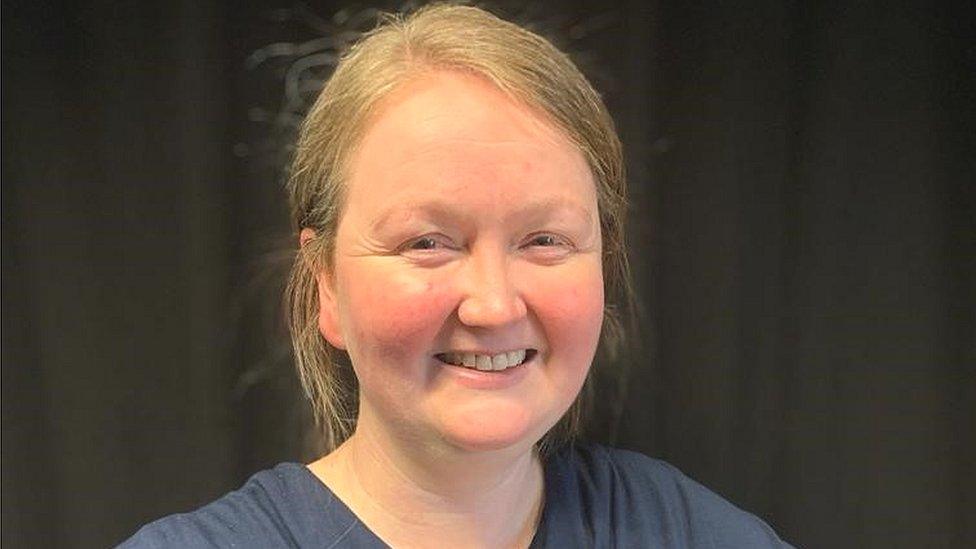Wigtown: The place with a brighter future thanks to books
- Published
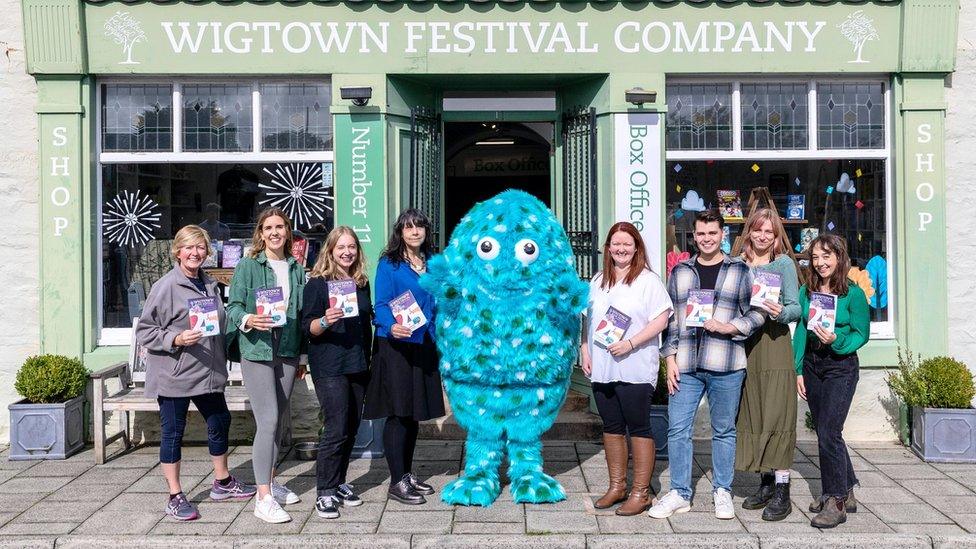
The Wigtown Book Festival is celebrating its 25th anniversary this year
When Meta Maltman saw an advert in The Herald for a competition to regenerate a place by making it Scotland's book town it started a chain of events.
It would ultimately see a corner of south west Scotland shake off a decade of decay.
Meta was part of a community group in Wigtownshire at the time and saw the opportunity for the area.
"I saw there was a move afoot to develop a Scottish book town," she said.
"The criteria mentioned there should be a lot of empty properties at reasonable cost and I thought, yes, Wigtown ticks all those boxes."
She "leapt up" and contacted the board of Machars Action and a meeting was quickly convened.
Sandra McDowall was a community councillor in 1997 and said they had been on the lookout for some time for ways to help turn around Wigtown's fortunes.
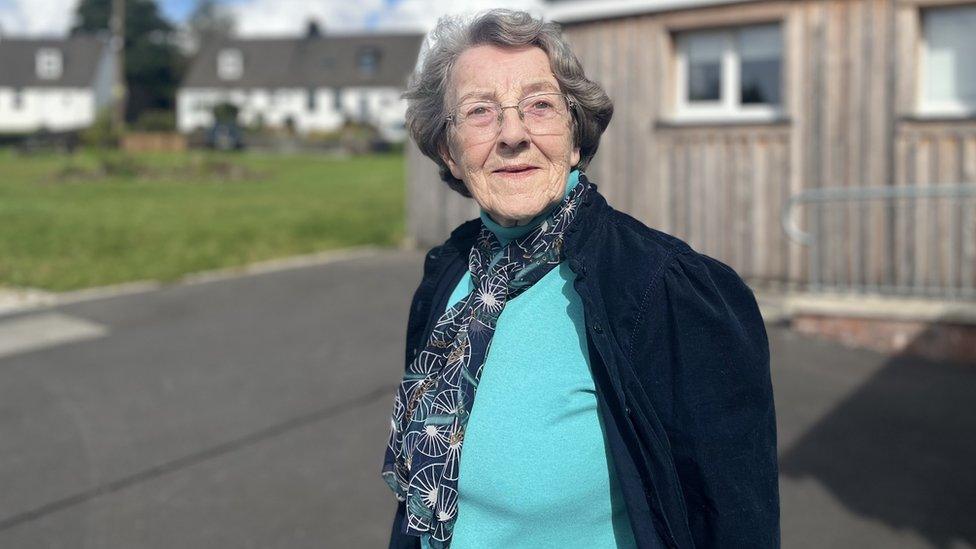
Meta Maltman saw an opportunity for Wigtown to fill empty properties and boost regeneration
She said by putting in a bid to be a book town they had "nothing to lose".
It was up against five other places, Gatehouse of Fleet and Moffat in Dumfries and Galloway as well as Dalmellington, Dunblane and Strathaven.
The aim was to emulate the successful Hay-on-Wye Festival in Wales.
Sandra said the day they won a crowd had gathered in anticipation and a cheer went up after they opened the office windows and shouted a simple "yes".
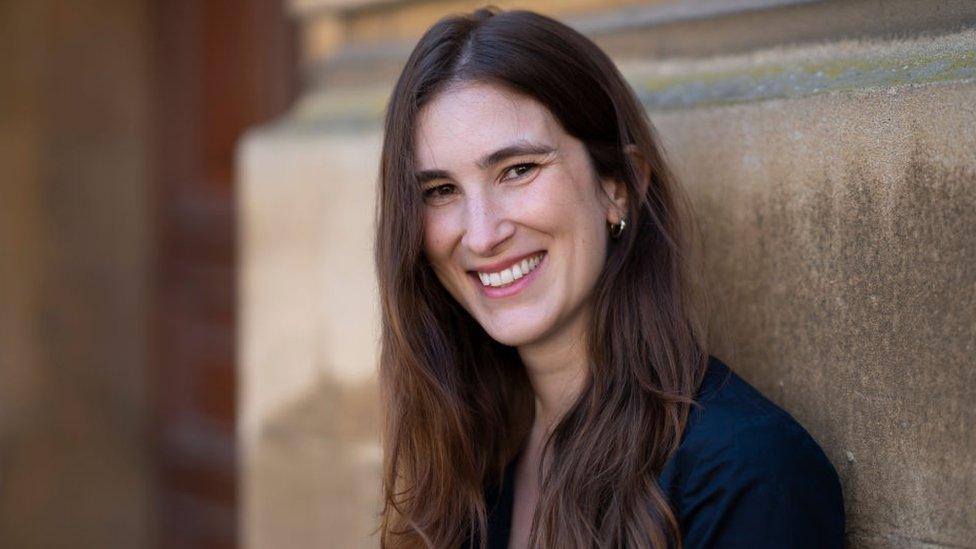
Katherine Rundell is among the authors attending the festival this year
A year later, in 1998, the first festival was held over a weekend in May.
Twenty-five years on it runs over 10 days beginning at the end of September and an independent assessment of the worth of Wigtown Book Festival (WBF) to the local economy has put the figure at £4.3m.
This year's highlights include Michael Morpurgo, Kate Mosse and Maggie O'Farrell as well as AF Steadman and Katherine Rundell.
However, guest programmer Lee Randall said the inclusion of Scottish and local talent and the commitment of volunteers was what would ensure WBF's continued success.
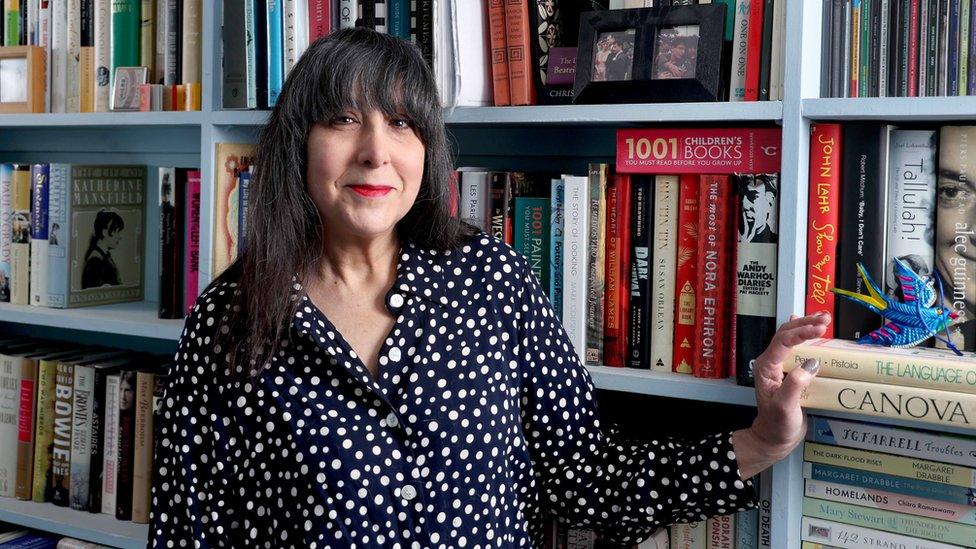
Guest programmer Lee Randall said they tried to create an "intimate festival with an international outlook"
"I am very proud that we have a good clutch of debut Scottish novelists," she said. "These are the stars of the future.
"What we've got and what they've built is a local, intimate festival with an international outlook.
"It's the kind of place where you can feel the town's arms around you but the people it's encircling come from everywhere."
Meanwhile, Wigtown has seen an explosion in bookshops.
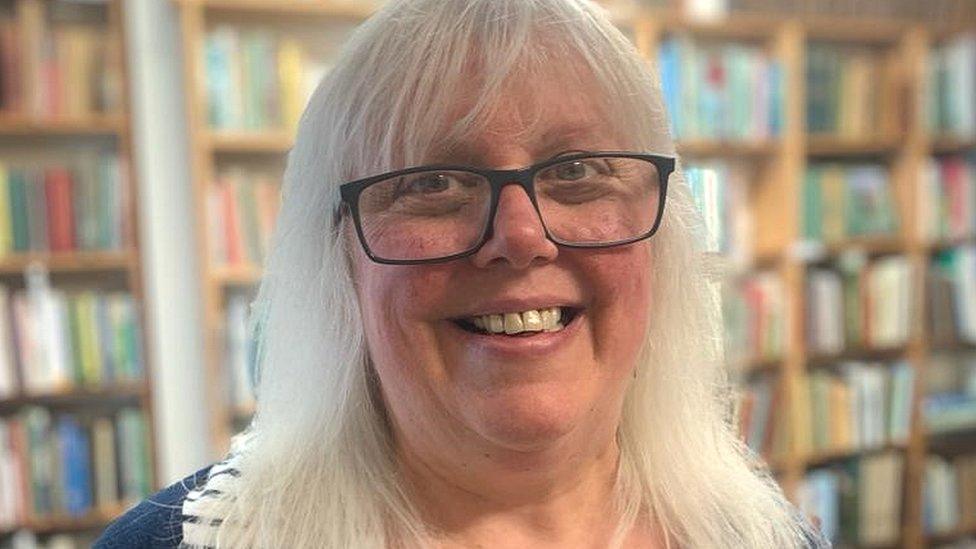
Six years after the festival began, Joyce Cochrane and her husband decided to buy a shop and return home
Joyce Cochrane runs the Old Bank Book Shop with her husband Ian.
Six years after the festival began, they decided to buy a shop and return home but when the deal fell through they had nowhere to live and Joyce found out she was expecting a child.
Just when things were feeling a bit desperate, the Old Bank came up and they moved in above the shop.
Among their memories is an appearance by Madame Doubtfire author Anne Fine and the interaction with very vocal turkeys nearby.
Joyce said: "Every time the author spoke the turkeys would answer."
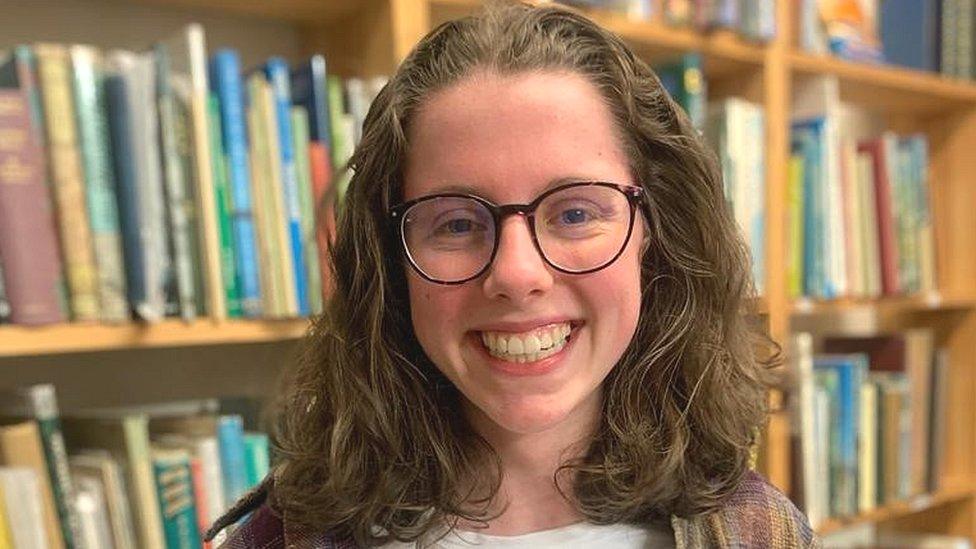
Helena Cochrane said she had been inspired by the visitors to Wigtown
Joyce and Ian's daughter, Helena, is now at university and takes photos of the dark sky in the region - all inspired by those who came to Wigtown.
"People came from Nasa which was crazy and it started my love for space," she said.
"Wigtown started a Big Bang weekend about space and science and I then applied to become a Dengineer in the BBC show, that sparked my love of film which I'm off to study.
"Without Wigtown I wouldn't be doing anything I'm doing now."
This year hasn't been without controversy for book festivals though with Edinburgh facing calls to ditch investment firm Baillie Gifford as a sponsor next year or face a boycott by authors. over a row about fossil fuels.
The company says only 2% of its investments are linked to fossil fuels and those are with businesses looking to move away from them.
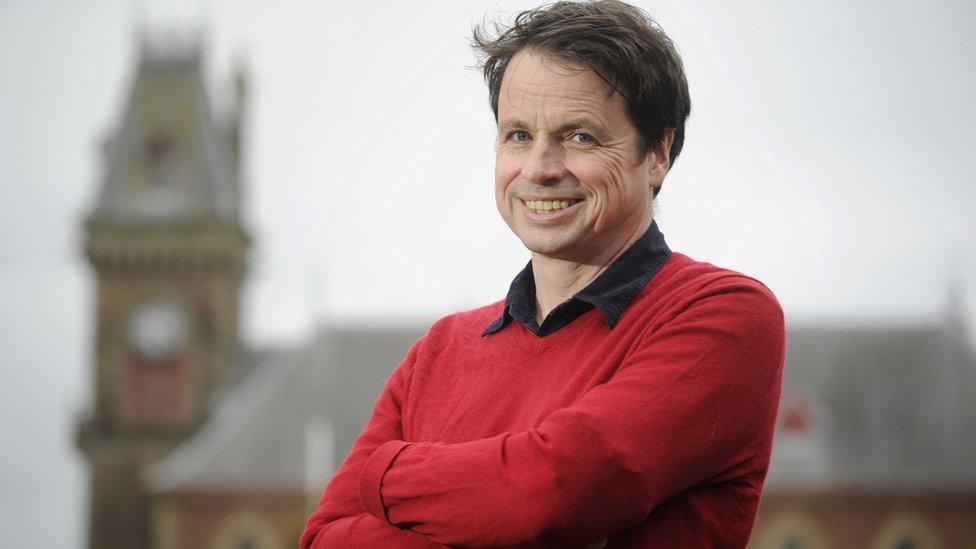
Adrian Turpin said he was optimistic about the future of the Wigtown festival
Baillie Gifford is one of the backers of Wigtown and director, Adrian Turpin, said it had helped them through Covid and supported children's events.
The festival costs about £600,000-a-year to run and sponsorship comes from the council, individuals, charities and local businesses.
Adrian said that with the cost-of-living crisis off the back of the Covid pandemic every penny counted but he was optimistic Wigtown will survive.
"I think its DNA is a sense of place and by that I mean people, heritage, history," he said.
"You've got the volunteers, the particular landscape of Wigtownshire, the writers, the Scots language, the way people are so passionate about their place."
That should hopefully fuel the book town - and its festival - for years to come.
Listen to more on Wigtown at 25 in our specials on BBC Sounds.
Related topics
- Published16 May 2023
